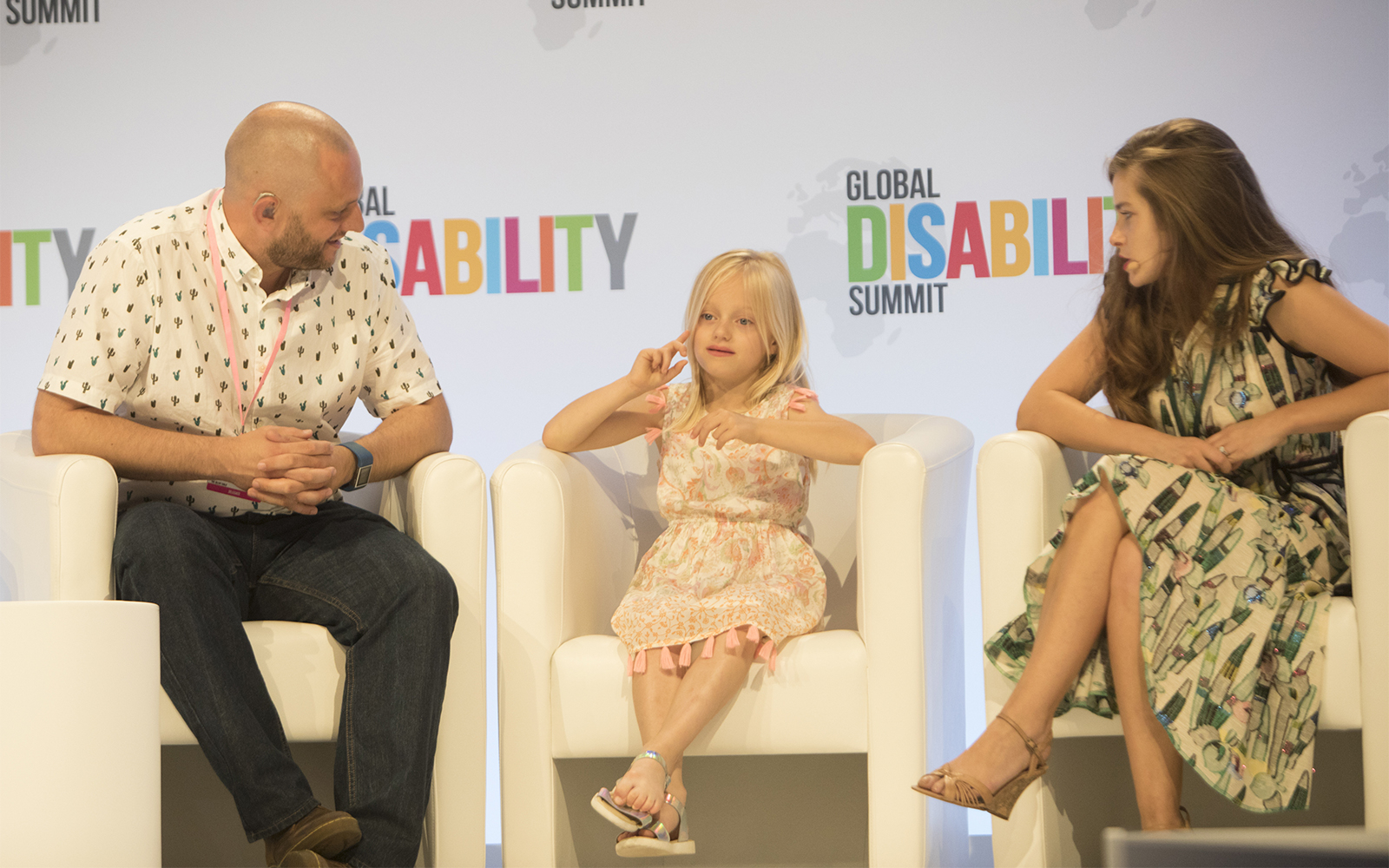
Photo courtesy of UK-DFID/Michael Hughes.
SHARE
More than 1 billion people – approximately 15 percent of the world’s population – experience some form of disability. They are the world’s largest marginalized group, and face significant accessibility and representation challenges that limit or restrict their equal participation in nearly all aspects of society. At the first Global Disability Summit – held last week in London – self-advocates, governments, international institutions and business leaders from around the world convened to raise attention about the scale of disability exclusion and secure new commitments for change. The summit revolved around four key themes: addressing stigma; supporting inclusive education; expanding economic empowerment; and providing better access to technology and devices.
“It’s time to move from rhetoric to action,” said Penny Mordaunt, UK secretary of state for international development. “Discrimination and stigma against disabled people is a global injustice.”
NDI joined over 300 organizations and governments in signing the “Charter for Change,” a 10-point pledge launched at the summit which outlines steps for ensuring “rights, freedoms, dignity and inclusion for all persons with disabilities.” These steps – which commit the signatories to action on representation, economic empowerment, access to assistive technology and other crucial issues – align with the United Nations Convention on the Rights of Persons with Disabilities (CRPD), which provides the backbone for the global disability rights movement, and the UN’s 2030 Sustainable Development Goals.
The CRPD was adopted in 2006 and has been ratified by 177 nations, but domestic implementation of treaty commitments has been a challenge for many governments. Many disability advocates use the CRPD as a starting point for action and collaboration on disability rights in their respective countries.
NDI is committed to disability rights because democracy can only be achieved when all citizens can participate fully and equally in political life. The principle of “nothing about us, without us” requires that people with disabilities have the ability to engage with decision-makers on any and all issues that affect them. Unfortunately, their voices are often overlooked or ignored during policy development, which makes strengthening their political power and influence a priority need.
NDI programming helps people with disabilities organize and take collective action on disability rights issues while supporting their engagement in mainstream political life, including joining political parties, voting in elections and running for office. Increasing the visibility of people with disabilities and awareness of their needs and interests is a critical component of disability inclusion. In NDI’s work, this often entails purposefully bringing disability communities together with other segments of society to increase cooperation, build relationships and break down discriminatory social attitudes.
The failure to integrate the views and needs people with disabilities into development assistance and government often results in human rights violations that can have dire consequences. More than 80 percent of the world’s disability population lives in developing or post-conflict countries, where accessible infrastructure and critical support services are often severely lacking or absent altogether. As a result, the unemployment rate among this population can be as high as 75 percent; a fact which in turn limits access to education, essential health care and assistive technology to facilitate full integration into mainstream society. This lack of resources and infrastructure can even be deadly: according to the Global Facility for Disaster Reduction and Recovery, fatality rates resulting from disasters are sometimes four times higher than in the general population.
In addition to the “Charter for Change,” the summit produced a number of notable financial commitments. The Australian government pledged almost $17 million to support disability programs in response to the Syrian conflict and refugee crisis, while the UN Trust Fund to End Violence Against Women pledged to spend $3 million on programs aimed at reaching at least 8,000 women and girls with disabilities who have suffered from or are at risk of violence.
The summit, which was hosted by the UK Department for International Development, the International Disability Alliance (a network of over 1,000 disabled persons’ organizations) and the Government of Kenya, also featured a number of forums and workshops, with topics including strategies for supporting implementation of the CRPD, the role of data in fostering inclusive development policies, and mainstreaming disability as an indispensable component of infrastructure conceptualization and universal design.


